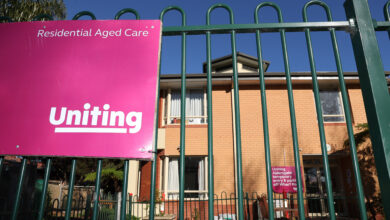AHHA, other peaks call for marriage equality for better health

The Australian Healthcare and Hospitals Association (AHHA) has joined a host of leading health organisations calling on the Australian Government to make marriage equality a reality.
AHHA let its stance be known via a recently released Position Statement on Marriage Equality and Health.
The statement read: “Marriage equality would confer societal acceptance and would provide significant health benefits to LGBTIQ Australians.
“Studies, such as the 2016 evidence review from the Centre for Social Research in Health, show that the introduction of marriage equality results in greater feelings of social inclusion along with better health outcomes for LGBTIQ people.”
Chief executive Alison Verhoeven also cautioned against a national plebiscite on the grounds of the mental health of LGBTIQ people.
“Evidence from overseas shows that plebiscites on this issue and others involving the rights of a social minority have significant negative mental health impacts on the group in question, in this case LGBTIQ people, through exposure to an adversarial and devaluing public and social debate,” she said. “Rather than having divisive discourse, the Australian Government and the community could be acting to reduce marginalisation and discrimination, improve equity, and enhance the health and wellbeing of LGBTIQ people and their families.”
AHHA was also one of 36 leading health organisations, including the Australian Nursing and Midwifery Federation, headspace, Australian Primary Health Care Nurses Association, Black Dog Institute and the Public Health Association of Australia, to endorse the United Statement on Marriage Equality by ACON and the Victorian AIDS Council.
Both statements draw on an ACON and University of New South Wales evidence review of the impacts of marriage equality, and marriage denial, on the health of lesbian, gay and bisexual people.
Verhoeven said the evidence review shows that LGBTIQ people form a minority population group that experiences poorer health outcomes than the general population. “This can be attributed to ‘minority stress’, where LGBTIQ people struggle for validation and social acceptance. One of the more recent examples of institutional discrimination against this group is the exclusion of same-sex couples from civil marriage.
“Feelings of safety and inclusion in the community are extremely important to health generally. It follows that all healthy, safe and respectful relationships should be celebrated, which includes marriage equality."
Email: [email protected]





